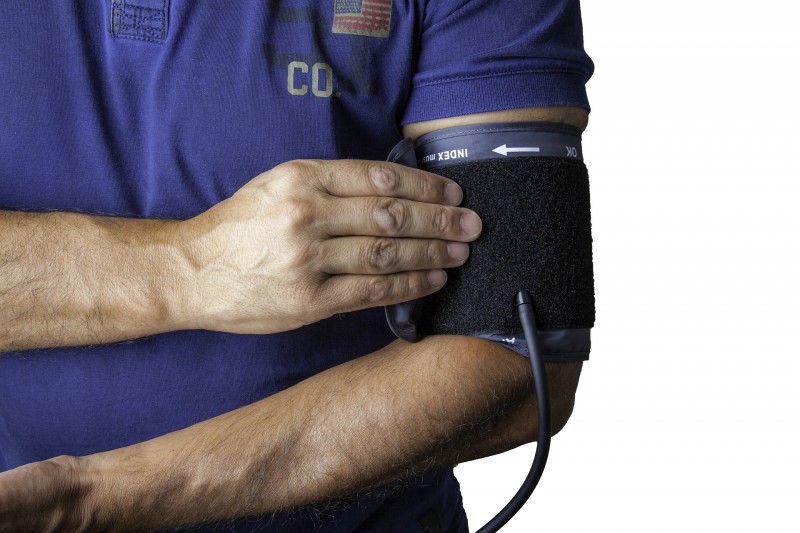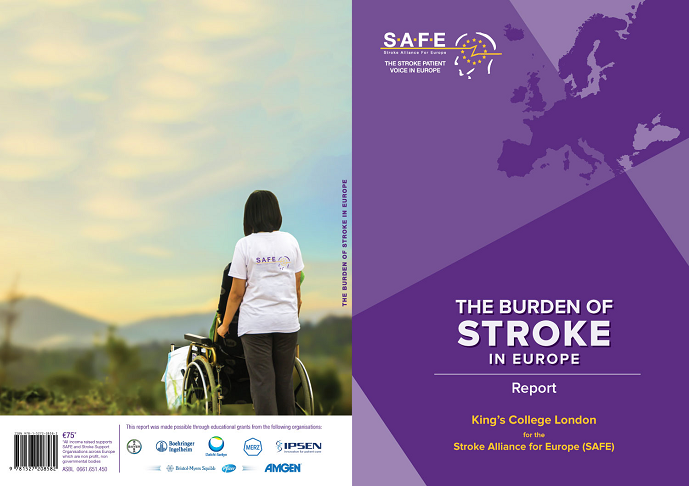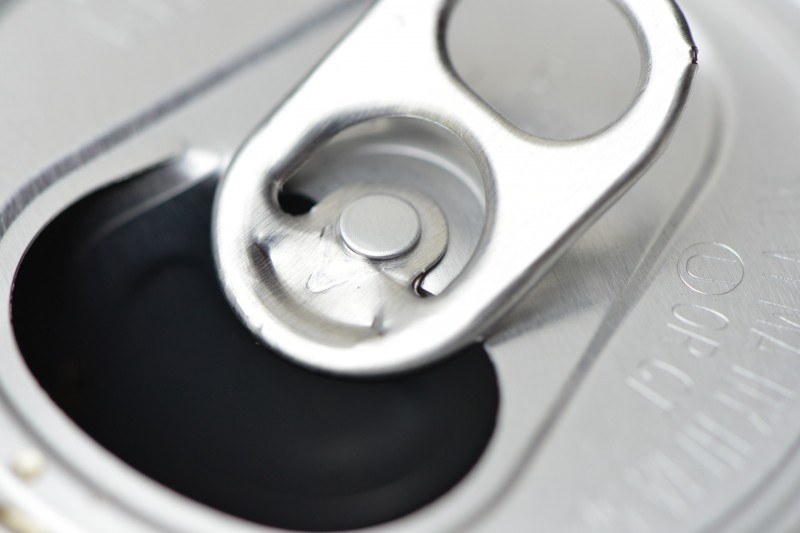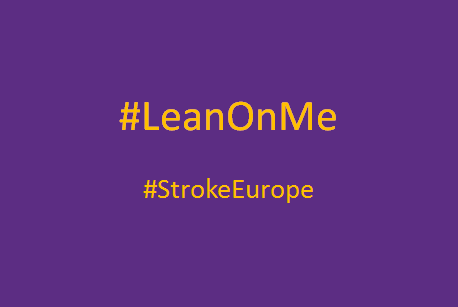
May 5, 2017
It is very important to check yourself, with or without a stroke in your medical history.
“I suffered a cerebral venous thrombosis in 2011 (I was 34 years old)…I was a journalist, editor of a weekly magazine…I did not have the time nor patience to practice sport…In addition to stress and sedentary lifestyle, also the use of oral contraceptives contributed – in the opinion of doctors – to my stroke” (Female stroke survivor in 2011, Portugal) (more…)

May 4, 2017
The Stroke Alliance for Europe (SAFE) is happy to announce the 1st EU Stroke Summit and launch of the Burden of Stroke in Europe Report.
The event will take place on 11th May 2017 at the European Parliament in Brussels. The Burden of Stroke Report will be officially presented during the Stroke Summit and will provide the basis for discussion on the current state of stroke prevention, follow-up care and rehabilitation in Europe.

A diverse group of healthcare providers, patients, carers and policy-makers will have an opportunity to exchange opinions on how to decrease the burden of stroke in Europe.
The Summit is kindly hosted by Members of the European Parliament Elena Gentile (S&D, IT), Marian Harkin (ALDE, IE), Aldo Patriciello (EPP, IT) and Helga Stevens (ECR, BE).
(more…)

May 3, 2017
Sophia Antipolis, 3 May 2017- Consumers are being warned about the accuracy of heart rate apps after a study found huge variability between commercially available apps, even those using the same technology. The research is published today in the European Journal of Preventive Cardiology.(1)
“Heart rate apps come installed on many smartphones and once people see them it is human nature to use them and compare their results with others,” said last author Dr Christophe Wyss, a cardiologist at Heart Clinic Zurich, Switzerland. “The problem is that there is no law requiring validation of these apps and therefore no way for consumers to know if the results are accurate.” (more…)

Apr 28, 2017

Image: pixabay.com
Excess sugar, especially the fructose in sugary drinks, might damage your brain, new research suggests. Researchers found that people who drink sugary beverages frequently are more likely to have poorer memory, smaller overall brain volume, and a significantly smaller hippocampus. A follow-up study found that people who drank diet soda daily were almost three times as likely to develop stroke and dementia when compared to those who did not. (more…)

Apr 26, 2017
We invite you to the #LeanOnMe challenge, to show your support to stroke survivors and their families by posting pictures of stroke survivors held by the hands by family members or friends. Let’s raise awareness about the type of support that all stroke survivors and their families need!

Source: Facebook
“The 10 days that Diana was hospitalized in the Cerebro Vascular Unit of Hospital de S. José, I spent by her side. From the time I woke up until she fell asleep, I felt that all the positive energy I could get through to her would work.
In fact, the team of doctors and nurses themselves said that the results and recovery were visible. When they came to share the advances in recovery with us and our children, they showed more joy and happiness than they had ever shown before.
“The mother can already reach her face with her right hand,” I said to the kids “One more victory. One more day of success. Which doesn’t allow us to sit back and relax, but work to achieve even more victories in the future!”
The “slow” but effective recovery was bearing fruit. Yesterday she could not move her index finger on her right hand, but she can do it today! Yesterday the headaches were at level 8, today they are already at level 7! Visible progress of those who accompanied me daily and felt that Diana was well taken care of, accredited people who did good, people with whom I created bonds, because they were taking care of the woman I love.
After the critical phase, when, so to speak, her life was no longer in danger, Diana returned to Amadora-Sintra Hospital from where she had left a month after the stroke, to the Rehabilitation Medicine Center of Alcoitão. She could already be transferred from the bed to a wheelchair, had recovered some movements and finally could receive the visits of the children, relatives and friends. I remind everyone who is reading this testimony that life is made up of challenges and achievements, happy moments and moments of sadness, emotions, feelings and energies. And, as a final note, I want to say that FORCE COMES FROM THE MIND AND OUR BELIFS! “
(Husband of a young female stroke surviver, Portugal AVC)
Stroke burdens everyone in the vicinity of the survivor, in every level imaginable. From the moment it happens, the person experiencing it and everyone in his/her life suffers. The biggest burden is evidently on the stroke survivor, since his/her life changes completely. The #LeanOnMe challenge is about showing your support to stroke survivors and their families by posting pictures of stroke survivors held by the hands by family members or friends. Let’s raise awareness about the type of support that all stroke survivors and their families need!
Stroke is a disease that brings chaos to the brain, body and soul of a person. Since one third of all stroke survivors are left with impairments, mild, moderate or severe, they need not only physical rehabilitation and help, but also emotional. No matter how severe the impairments are, the moment a stroke occurs brings the realization of death to all survivors. That is the moment he/she realizes for the first time in their life that they are not immune to death, and that they have to change. And to change is something that most people find very difficult. Apart from the inner fight a stroke survivor has, he also becomes very dependent on his family- physically, emotionally and financially. Consequently the dynamics of the family also changes. The person, who was an equal when it comes to pulling the family forward, can become the person everyone needs to take care of, which can be very stressful, for the stroke survivor and everyone else.
The necessity of support groups and facilities for stroke survivors and their families is a must when it comes to healthcare. The change it brings is not something to be taken lightly. When it comes to taking care of the survivor, the carers usually have no experience in taking care of a disabled person, so it often happens that a stroke survivor comes back for his/her 6-month check-up in a worst state than he/she was in at discharge. Not all people know how to properly take care of a person who is bed-bound. This is where the help of a professional nurses or carers come in. There should be people teaching family members/carers how to help the survivor with his treatment and everyday life.
Apart from the physical help, support groups and professionals helping with emotional strain of living with stroke are also of utmost importance. Stroke can cause stress, depression, change in behavior, and other neurological changes and problems to the survivor, which greatly influences all of his relationships. Learning to live and help with the above mentioned consequences of stroke is not only helpful for the survivor himself/herself, but also to his family and community.











